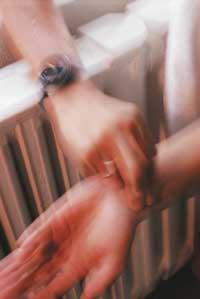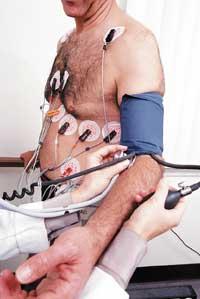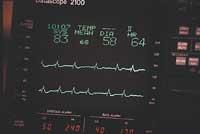Palpitations, are there reasons to worry?
Normally the heartbeat goes unnoticed and we don't realize it. We only perceive them when the heart beats with unusual intensity or rhythm. This is called palpitations.
Why do palpitations arise?

The heart is a muscle whose internal blood contracts rhythmically to expel and push into the arteries. The rate of these contractions varies from person to person, but is usually between 60 and 90 beats per minute. When these contractions are accelerated or slowed down, or even occur at an irregular rate, it is then that they are performed significantly and we realize.
Anxiety In
most cases, palpitations occur as a result of emotional change or alteration. Anxiety, fear, or stress can cause a throbbing crisis. Crises usually last a few minutes and have no serious consequences.
Excess stimulant substances
such as coffee, alcohol, tobacco Coffee, black tea, alcoholic beverages, tobacco nicotine, etc. can alter heart rate. Also drugs like cocaine and some pills or medicines.
As a symptom of
diseases, anemia, hyperthyroidism, hypoglycemia or fever itself force an additional effort so palpitations can appear.
Medications, Medications
If you have had palpitations lately, carefully read the prospects for the medications you are taking and some medications (antiarthritis or depression, thyroid hormones, etc.) palpitations.
Heart problems
Finally, palpitations can be a symptom of some heart diseases. Heartbeats can be too fast, too slow, or arrhythmic.
What to do?

As mentioned above, although palpitations generate restlessness and nervousness, normally if no other symptoms appear, there is no reason to be frightened. If the palpitations alter the pulse, for example if we have 120 pulses per minute, or if instead of being regular are completely arrhythmic, it is advisable to go to the doctor. And if we go to the specialist, he will probably do one of the following tests.
This
test measures the electrical activity of the heart, which allows us to detect changes in the heart rhythm.
Holter monitoring is
an electrocardiogram associated with a recorder as if it were a walkman. The patient takes it for 24 hours and several times throughout the day can record the electrical activity of the heart and see it on a monitor. This way you register whether you have palpitations or not.
If the electrophysiological
study is not enough with the electrocardiogram (ECG), your doctor may need an electrophysiological investigation if you want to determine the diagnosis. In the veins or arteries of the leg (usually in reality) catheters are inserted, thin tubes that are carried to the heart, to the atria and ventricles. These cables record the activity of each cardiac cavity and are able to stimulate the functioning of the heart with the help of electricity. They clearly show the electrical functioning of the heart and where the problem may be.
What is the most appropriate treatment?
Once the problem is detected, the specialist will establish the most appropriate treatment in each case. Let's look at the most common cases.
Anxiety
Therapy and medications: If palpitation has caused anxiety or anxiety, the result may be good by combining pharmacological treatment with psychological support therapy. It is also important to avoid coffee, alcohol, tobacco, queues and other stimulants.

Tachycardias
Drugs: Severity occurs in minimal cases, as they control the problem but do not solve it.
Cauterization: It consists of identifying by means of catheters inserted in the veins or veins of the leg the place where the problem is located and performing a cauterization as if it were an electric scalpel.
Defibrillator: when the previous path is not valid the defibrillator is placed. The beat is a kind of marker, a pile tied to a cord that goes to the heart. If the cable detects that heart beats go faster or faster than normal, it sends electrical pulses.
Bradicardiak
Pacemaker: this device marks the rhythm of the heart. When pulses are very slow, the pacemaker sends electrical pulses that slow down the activity and rhythm of the heart.
Although they are used fairly mixed, they do not name the same problem. What exactly does each of these words mean? Palpitations Arrhythmias When the |
Buletina
Bidali zure helbide elektronikoa eta jaso asteroko buletina zure sarrera-ontzian








